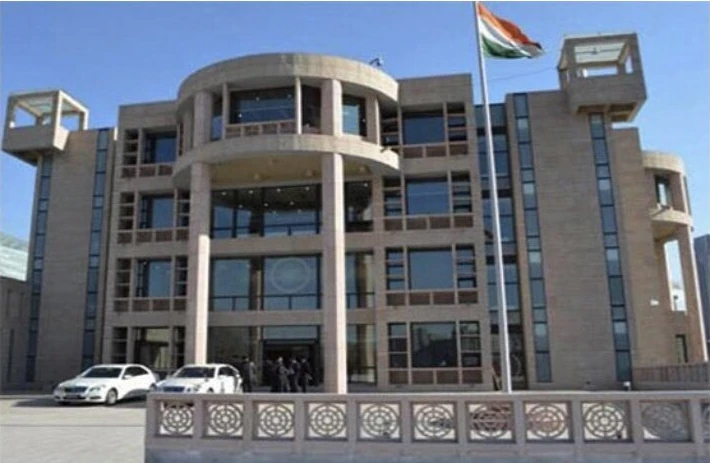The Taliban’s Afghan takeover carries with it five very important lessons that Indian strategists should seriously reflect on. The South Asian Great Power completely miscalculated almost everything connected to its policy in that country, which became obvious in the months since US President Joe Biden announced in mid-April that he’ll withdraw American forces from there by 11 September. Everyone whose interests were adversely affected by the dramatic turn of events over the past two weeks is now playing a blame game instead of accepting responsibility for their own policy failures, and this includes India which now has absolutely no influence in Afghanistan after evacuating its diplomatic staff. Here’s what India should learn from its Afghan fiasco:
“Strategic Depth” Isn’t Sufficient Enough Of A Basis For Policy
Some observers believe that India’s interests in Afghanistan were driven by its desire to achieve so-called “strategic depth” vis-a-vis Pakistan so that New Delhi could divide Islamabad’s attention between itself and Kabul instead of being its primary focus, but this wasn’t sufficient enough of a basis for its Afghan policy.
“Clandestine Operations” Isolated India From The Pashtuns
India’s reported Afghan-based “clandestine operations” against Pakistan and the Taliban, which New Delhi always denied despite Islamabad’s and the Taliban’s insistence that they exist, isolated it from the host country’s powerful Pashtun community and thus limited the South Asian state’s soft power appeal in society.
Bollywood & Infrastructure Don’t Always Win Hearts & Minds
India’s approach to winning hearts and minds in Afghanistan was to flood the country with Bollywood media and to build infrastructure across its rural regions, but the first aspect of this plan didn’t endear average Afghans to the Indian government while the second was taken for granted as something they deserved.
The Lack Of Diplomatic Flexibility Doomed Indian Policy
India should have seen the writing on the wall when Biden announced the date of the American military withdrawal and immediately began constructively engaging with the Taliban once the group’s offensive showed signs of success, but its lack of diplomatic flexibility resulted in India going all in on the losing side.
“Political Correctness” Prevented Meaningful Policy Debates
The unofficial concept of “political correctness”, which isn’t by any means exclusive to the Indian policy making process or its civil society, prevented any meaningful debates on India’s Afghan policy and thus regrettably resulted in groupthink and the consequent perpetuation of counterproductive policies.

With these constructive critiques in mind, here are some practical solutions going forward:
Geo-Economics, Not Geopolitics, Should Be The Basis Of Policy Formulation
India’s Chabahar project could have been a game-changer had it been initiated much earlier since it might have improved the living standards of Afghanistan’s rural majority and thus more sincerely endeared them to New Delhi, but the South Asian state instead prioritized geopolitical objectives at the expense of geo-economic ones.
Business & Diplomatic Circles Should Drive Policy Instead Of Military & Intelligence Ones
The prioritization of geopolitical objectives over geo-economic ones resulted in India’s reported “clandestine operations” that isolated it from Afghanistan’s powerful Pashtun community, but it didn’t have to be this way had business and diplomatic circles taken the lead in improving their lives and winning hearts and minds.
Pragmatic Engagements With Real Social Leaders Should Be Prioritized
Exporting Bollywood media and investing in infrastructure projects weren’t enough for India to win hearts and minds since it should have had more pragmatic engagements with tribal leaders including Taliban-connected ones, which could have led to it meeting more of their needs and truly being seen as an ally worth keeping.
There Shouldn’t Be Any Shame In Suddenly Switching Policies
India clung to its counterproductive Afghan policy until the very end because it felt that it would be shameful to go against the anti-terrorist and other principles that its leaders previously claimed were driving it, yet New Delhi should have switched its policy upon seeing that everyone else was doing so, including its Russian ally.
Candid But Responsible Conversations Should Commence Across Society
The “political correctness” responsible for perpetuating India’s counterproductive Afghan policy can only be counteracted through the commencement of candid but responsible conversations across society focused on constructively identifying what went wrong and how to learn from it so that this fiasco doesn’t happen again.

The major flaw in this article is the idea that India even had an Afghan policy short of using Afghanistan as a conduit for sending arms, explosives, spies, saboteurs, and terrorists to destabilise Pakistan. That was India’s only one fixed plan and it was to continue that practice that Modi’s foreign minister S Jaishankar went to Qatar in May to talk to the Taliban leadership. The fact that the talks were held was leaked immediately, confirmed by the Qataris, and not denied by the gibbering globetrotting genocidal Gujarati gangster government for three weeks. Then, suddenly and abruptly in late June, Jaishankar angrily denied he’d ever met any Taliban. Why this sudden and belated denial? Did the Taliban turn down whatever bribe Jaishankar was ready to offer?
Even Modi regime pet media, what anti Modi Indians call “godi” (lapdog) media, said that India’s policy towards Afghanistan was totally paralysed. It just got worse when Modi, two full days after Kabul fell, decided to withdraw the Indian embassy, which the godi media are now portraying as a dramatic, skull and dagger, James Bond move. In reality the Taliban just let them go.